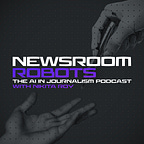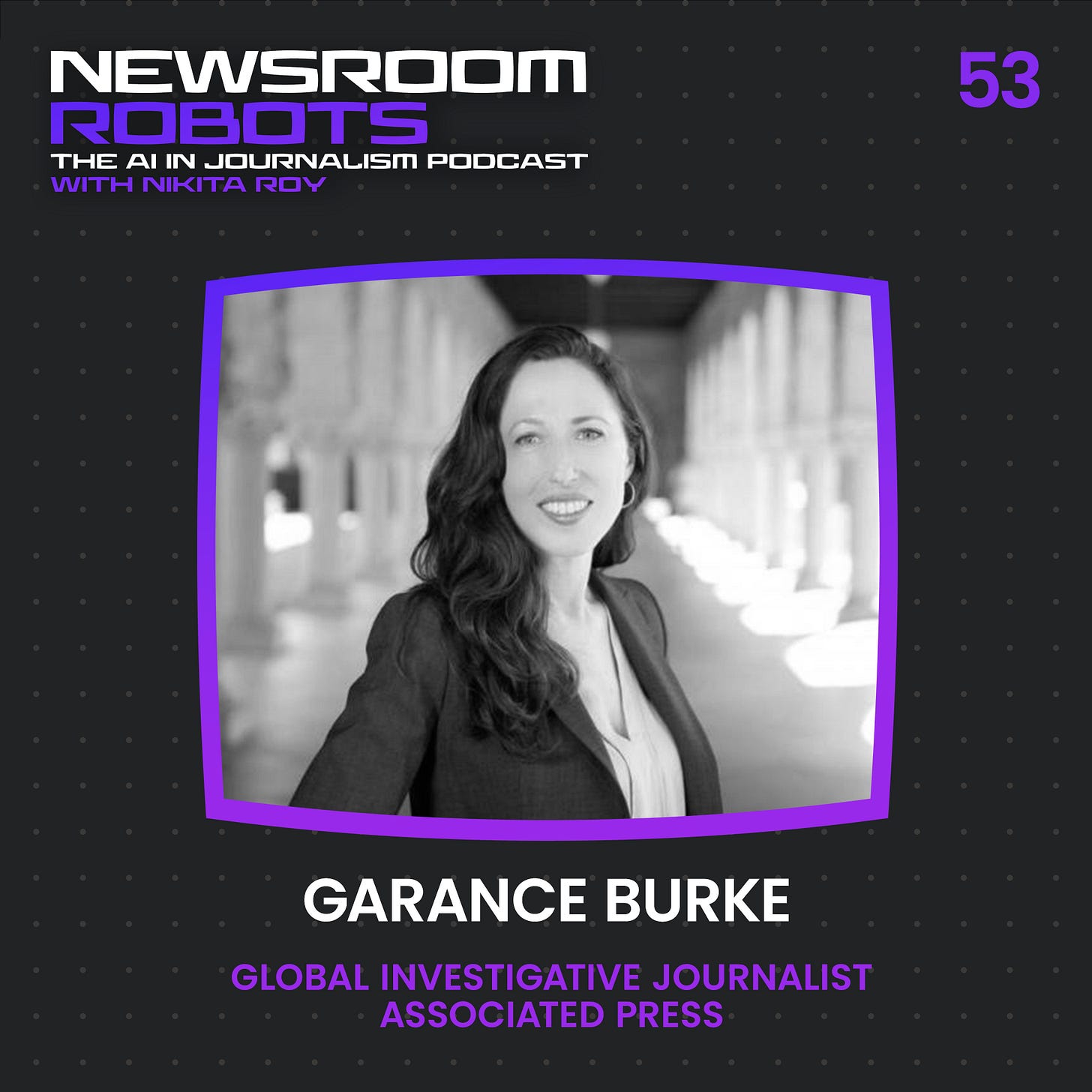In a world increasingly shaped by artificial intelligence, one question looms large: Who is watching the machines?
According to veteran investigative journalist Garance Burke, the answer should be us – the Fourth Estate.
Burke, a global investigative journalist with The Associated Press, has been at the forefront of investigating the power and impact of AI technologies on society. Her data-driven reporting has prompted federal investigations, cabinet-level resignations, and congressional hearings. Burke's Pulitzer Prize-finalist work inspired an Emmy-winning documentary with FRONTLINE PBS. As a 2020 Human-Centered Artificial Intelligence-John S. Knight Journalism Fellow at Stanford, she researched algorithms in government decision-making. Burke also led the development of the AI chapter in the AP Stylebook, which provides journalists with best practices for covering AI models.
In our conversation, Burke emphasizes the importance of AI in every journalistic beat. "AI is just now part of every beat that journalists cover," she states. "Our real job as journalists is to help the public understand how AI is affecting our world."
Burke stresses the importance of returning to journalistic basics when reporting on AI systems. She encourages journalists to question how these systems work, where they are deployed, how well they perform, who benefits from their growth, and which communities may be impacted.
"You can talk directly to the communities who are being impacted by a certain model," Burke suggests, addressing the challenges journalists face when investigating the often proprietary nature of AI technologies. "You can talk to folks who are experts in machine learning and try to get a sense of what they have observed with the performance of these different kinds of models over time."
She also highlights the importance of using AI models themselves to bring forward information in the public interest. She shares an example of a collaboration with Proof News, where they investigated the responses of popular chatbots to basic questions about U.S. democracy. They discovered that some chatbots provided misleading information, such as telling voters in a predominantly black neighborhood in Philadelphia that there was no polling place for them.
"I think there's also ways to use the models themselves to figure out new ways to bring forward information in the public interest," Burke explains. "You can use a synthetic data set, like sort of a computer-generated data set similar to the data used to train the model, to simulate what somebody using that tool would experience."
As AI continues to shape political strategies during elections, Burke emphasizes the need for journalists to inform voters about the potential influence of these technologies. She mentions her team's new series, "The AI Campaign," which explores the impact of artificial intelligence in this crucial election year around the globe. "As members of the press, we really want to inform voters about what it is that they'll be seeing coming to their cell phones in the months to come," she says.
Burke's message is clear: journalists across all beats must critically examine AI's impact on their respective fields. By focusing on the humans behind these systems and those affected, reporters can give the public a nuanced understanding of AI's influence on our world.
As Burke aptly puts it, "Our job is to both help explain how AI systems work and then focus on those really human stories that everyone can respond to, that show the effect that AI tools have on people."
🎧 For more insights on reporting on AI from one of the industry's leading experts, tune in to the full episode available now on Apple, Spotify, Google Podcasts, and other major podcast platforms.










